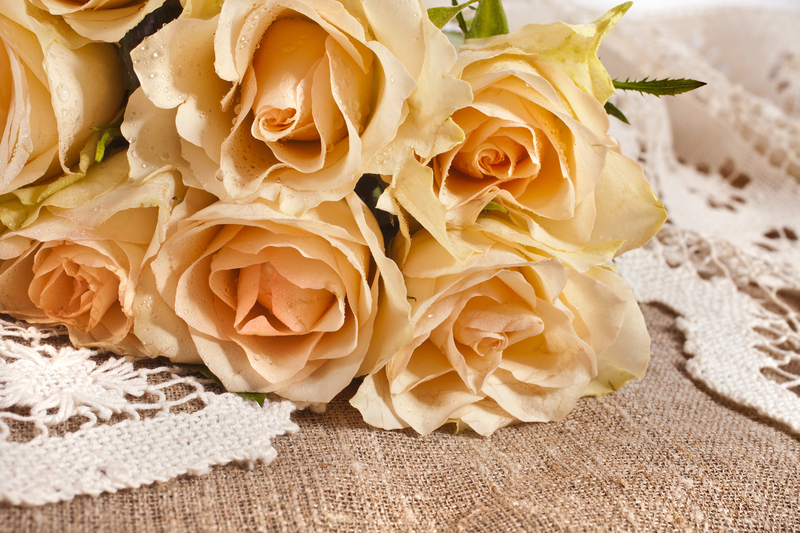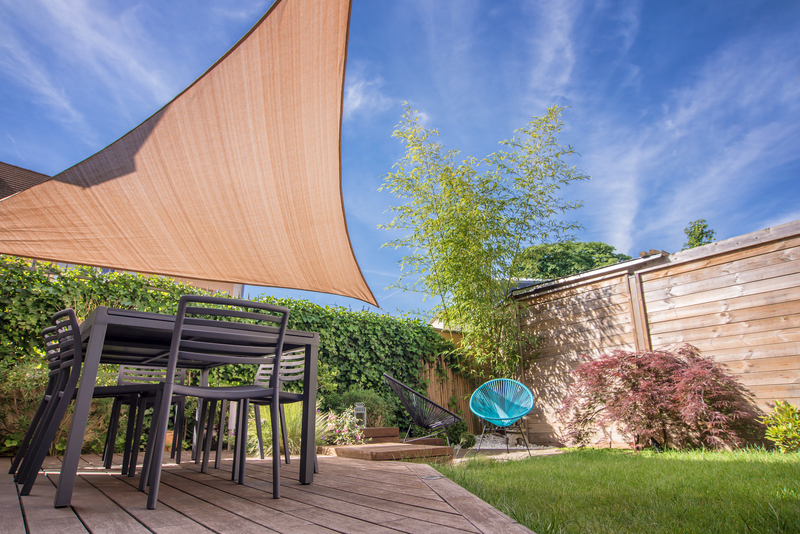Beginner's Guide to Composting
Posted on 09/02/2025
Composting is a simple and effective way to reduce waste and create a valuable resource for your garden. By transforming organic waste into nutrient-rich compost, you can improve the quality of your soil, nourish your plants, and significantly cut down on household waste. This guide will walk you through the basics of composting, from understanding its benefits to starting and maintaining your compost pile.
What is Composting?
Composting is the natural process of recycling organic matter, such as leaves and food scraps, into a valuable fertilizer that can enrich soil and plants. This process relies on the aerobic decomposition of organic materials by microorganisms that break down the material into a nutrient-rich product known as compost.

Why Compost?
There are numerous benefits to composting which can positively impact both the environment and your own gardening efforts:
- Reduces Waste: Composting helps divert significant amounts of organic waste from landfills, reducing methane emissions and conserving landfill space.
- Improves Soil Health: Adding compost to your soil enhances its structure, increases moisture retention, and helps balance pH levels.
- Enriches Plants: Compost provides essential nutrients that promote healthy plant growth, reducing the need for chemical fertilizers.
- Saves Money: By creating your own compost, you reduce the need to buy commercial fertilizers and soil conditioners.
Types of Composting
Composting can be approached in several ways depending on your living situation, available space, and personal preference. Here are a few methods:
Backyard Composting
This method involves creating a compost pile or using a bin in your garden. It requires a mix of green (nitrogen-rich) and brown (carbon-rich) materials to maintain a balanced compost pile.
Vermicomposting
Vermicomposting uses worms, specifically red wigglers, to decompose organic matter. This method is excellent for small spaces and can be done indoors using a worm bin.
Tumbler Composting
A compost tumbler is a closed container that can be rotated to aerate the compost. This makes it easier to manage and speeds up the composting process, which is ideal for households with limited space.
Bokashi Composting
Bokashi composting is a fermentation process that uses a special bran inoculated with microorganisms to break down organic matter. It can handle cooked foods and meat, which are typically not recommended for traditional composting methods.
Getting Started with Composting
Starting a compost pile involves a few key steps. Here's a simple guide to get you started:
Choosing the Right Location
Pick a location that is convenient for you to access. Ideally, it should be in a sunny spot that drains well. If you are using a compost bin, place it on bare soil to facilitate the entry of beneficial organisms.
Assembling Your Materials
There are two types of materials you will need for a healthy compost pile: green materials and brown materials.
- Green Materials: These are rich in nitrogen and include items such as vegetable scraps, fruit peels, coffee grounds, and grass clippings.
- Brown Materials: These are carbon-rich and include dried leaves, straw, cardboard, and paper. It's crucial to have a correct balance between green and brown materials, typically in a ratio of 1:2.
Building Your Compost Pile
Start by laying down a layer of coarse materials like straw or small branches to help with drainage and aeration. Then, alternate between green and brown layers, keeping them moist but not waterlogged. Each layer should be a few inches thick.
Maintaining Your Compost Pile
Proper maintenance is key to successful composting. Here are some tips to keep your compost pile healthy:
Aerating the Pile
Turning your compost pile regularly helps to aerate it, which speeds up the decomposition process and reduces odors. Use a pitchfork or compost turner to mix the materials every few weeks.
Moisture Levels
Your compost pile should be as moist as a wrung-out sponge. If it's too dry, add water and more green materials. If it's too wet, add brown materials and turn the pile more frequently to improve aeration.
Managing Temperature
If your compost pile is large enough, it will heat up as microorganisms break down the material. A hot pile (between 135?F to 160?F) decomposes faster and kills off weed seeds and pathogens. If the pile isn't heating up, it may need more green materials or better aeration.
Troubleshooting Common Issues
Even the best compost piles can encounter problems. Here's how to troubleshoot common issues:
Unpleasant Odors
Bad smells typically indicate that your compost pile is too wet or has too many green materials. Add more brown materials and turn the pile to introduce more air.
Pile Not Heating Up
If the pile isn't reaching high temperatures, it may lack nitrogen. Try adding more green materials like grass clippings or kitchen scraps.
Pests
Pests can be attracted to compost piles if you include meat, dairy, or oily foods. Stick to plant-based scraps and cover each addition with brown materials to reduce attraction.
When is Compost Ready?
Compost can take anywhere from a few months to over a year to mature, depending on the method used and how well it's maintained. Finished compost is dark, crumbly, and has an earthy smell. It should no longer resemble the original materials.

Using Your Compost
Once your compost is ready, it can be used in several ways to benefit your garden:
- Soil Amendment: Mix compost into your garden beds to improve soil structure and fertility.
- Mulch: Spread a layer of compost on top of the soil to help retain moisture and suppress weeds.
- Potting Mix: Blend compost with soil and other ingredients to create a nutrient-rich potting mix for container plants.
Conclusion
Composting is a rewarding activity that offers numerous environmental and practical benefits. By following the steps outlined in this guide, you can turn your organic waste into a powerful resource for your garden. Whether you choose backyard composting, vermicomposting, or another method, the key is to start and keep experimenting until you find what works best for you. Happy composting!












